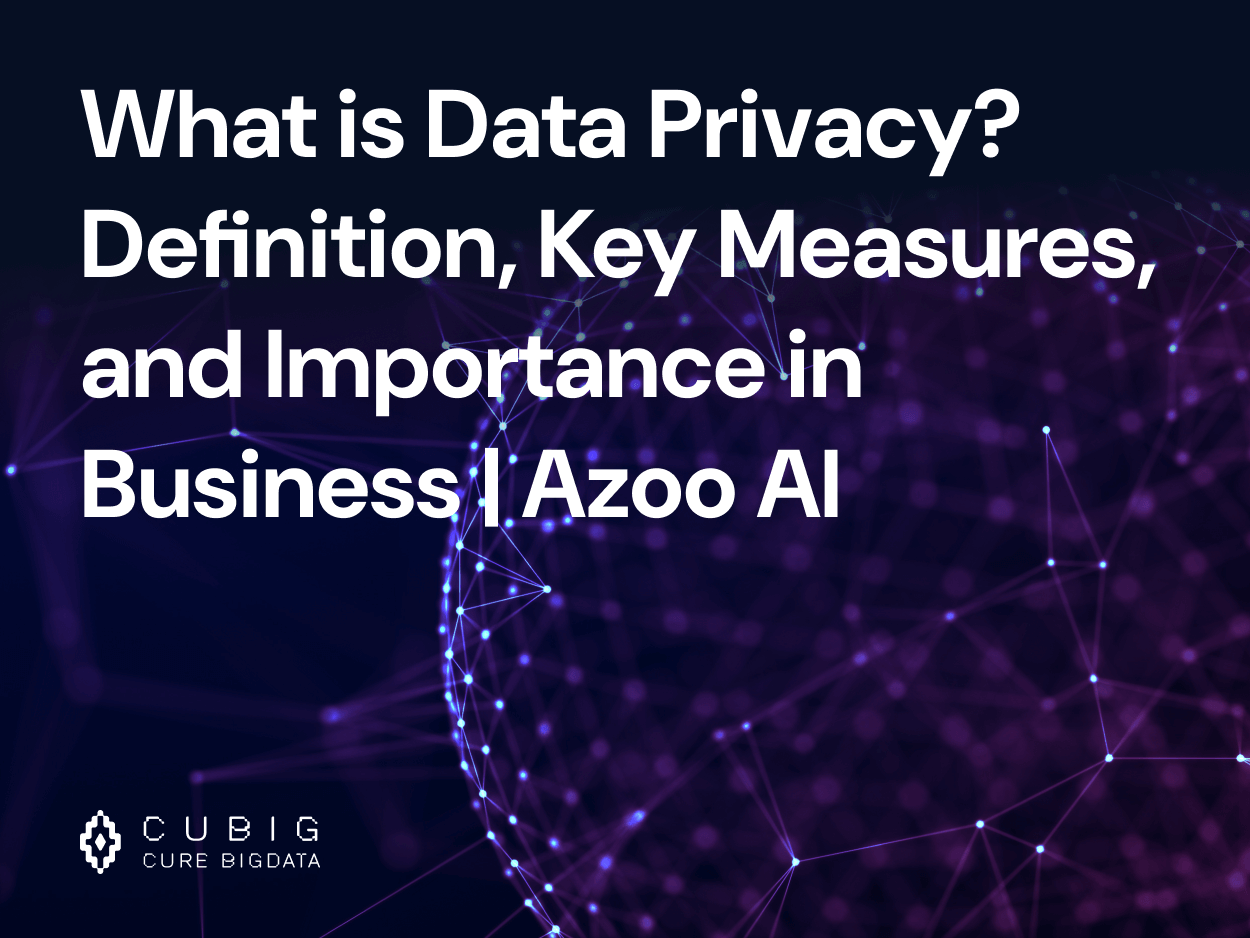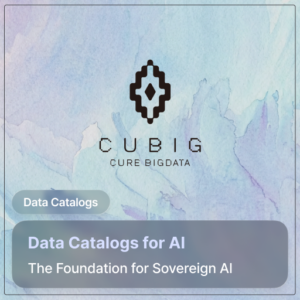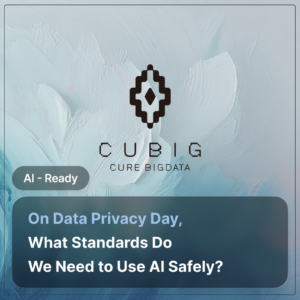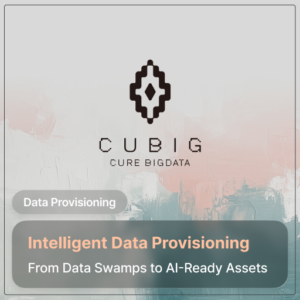What is Data Privacy? Definition, Key Measures, and Importance in Business | Azoo AI
Views: 0
Data privacy is no longer just a legal concern—it’s a business imperative. As companies handle more personal and sensitive information than ever, strong data privacy practices help build trust, ensure compliance, and reduce risk. In this guide, we’ll explore what data privacy means for businesses, how it differs from related terms like data security, and how Azoo AI helps companies strengthen privacy by design.
What is data privacy?
Data privacy refers to how personal or sensitive information is collected, shared, stored, and used. It ensures individuals have control over their own data and that organizations manage that data in a lawful and transparent way. Core data privacy principles include consent, purpose limitation, and minimal data collection.
Why is data privacy important?
Protecting customer trust
Customers are more likely to do business with companies that respect their data rights and provide transparency.
Ensuring compliance with global laws
Privacy regulations like GDPR, CCPA, and others require businesses to follow strict standards when handling personal data.
Reducing legal and financial risk
Violations of privacy laws can lead to fines, lawsuits, or bans from key markets.
Supporting ethical business practices
Respecting privacy isn’t just about laws—it’s about doing the right thing.
Business benefits of strong data privacy
Competitive advantage
Privacy-forward companies are preferred by customers and investors.
Increased data quality
When users know their data is safe, they’re more willing to share accurate and useful information.
Improved innovation
Clear privacy frameworks enable teams to safely use data for research, analytics, and AI development.
Key data privacy regulations
GDPR (General Data Protection Regulation)
Applies to any company handling data of EU citizens, even if located outside Europe. It requires transparency, legal basis, and data subject rights.
CCPA (California Consumer Privacy Act)
Grants California residents rights to know, delete, and opt out of the sale of personal data.
HIPAA (Health Insurance Portability and Accountability Act)
Protects health information in the U.S., particularly for hospitals, insurers, and related entities.
PIPEDA (Personal Information Protection and Electronic Documents Act)
Canada’s privacy law, focusing on fair collection and handling of data.
LGPD (Lei Geral de Protecao de Dados)
Brazil’s national data privacy law, inspired by GDPR.
Principles of data privacy
Data privacy is guided by a set of principles that ensure fairness, transparency, and accountability in how personal data is handled. These principles form the foundation of global regulations and help organizations establish trust.
Consent and control
Users must give informed, freely given consent to data collection. They should have the ability to access, manage, or revoke that consent at any time.
Purpose limitation
Data must only be collected and used for clear, specific, and lawful purposes that are explained to the user in advance.
Data minimization
Organizations should only gather the minimum amount of data necessary to fulfill their stated purpose—no more, no less.
Accuracy and transparency
Collected data should be kept up to date, and individuals must be clearly informed about how their data is being used and why.
Storage limitation and erasure
Personal data should only be stored as long as needed and must be deleted or anonymized upon request or after its purpose expires.Don’t retain data longer than needed and honor deletion requests.
Common data privacy risks for businesses
Even with regulations and technology, data privacy violations often stem from overlooked risks. Identifying and mitigating these risks is crucial for long-term trust and compliance.
Accidental data exposure
Sensitive data may be leaked due to misconfigured cloud storage, unencrypted files, or internal mistakes such as sending information to the wrong recipient.
Third-party misuse
Vendors or external platforms may access personal data without adhering to the same privacy standards, resulting in indirect exposure or unauthorized usage.
Consent mismanagement
Failing to track, log, or respect user consent—especially in large-scale digital environments—can lead to major compliance violations.
Dark patterns and deceptive UX
Interfaces that trick users into providing more data than necessary undermine trust and can be legally questionable under laws like GDPR.
Insufficient anonymization
Sharing or analyzing data without proper de-identification can expose users to re-identification risks, especially with advanced analytics tools.
Lack of privacy governance
Without clear policies, roles, or processes, even well-intentioned companies may struggle to maintain consistent data privacy standards across teams and systems.No central accountability or documentation of privacy processes.
Data privacy technologies and tools
To meet privacy expectations and regulatory requirements, businesses must use a mix of policy-driven processes and cutting-edge technology. These tools help organizations scale privacy management without sacrificing user experience or operational efficiency.
Consent management platforms (CMP)
These tools help organizations collect, store, and manage user consent across digital touchpoints in compliance with laws like GDPR and CCPA.
Data mapping and discovery tools
Allow businesses to visualize where personal data lives in their systems, helping them track data flows and detect unauthorized exposure.
Privacy-enhancing technologies (PETs)
PETs like differential privacy, federated learning, homomorphic encryption, and secure multiparty computation protect data during use while preserving privacy.
Data subject request (DSR) automation tools
Automate workflows for responding to user requests for access, correction, or deletion of personal data, ensuring timely and consistent responses.
Anonymization and pseudonymization solutions
Techniques that strip identifiers from data sets while maintaining analytical value. Crucial for training AI and sharing data across borders.
Audit and compliance tools
Provide reporting, logging, and documentation needed to prove regulatory compliance and internal accountability.Help document and demonstrate adherence to regulations.
Azoo AI’s approach to data privacy
Azoo AI helps organizations implement privacy by design and by default. Our synthetic data and prompt filtering tools:
- Eliminate exposure to raw personal data by generating high-quality synthetic alternatives
- Automate compliance with data subject rights, consent tracking, and purpose limitations
- Enable AI development and analytics with GDPR-, HIPAA-, and CCPA-ready de-identified datasets
Azoo AI is built to meet the strictest global privacy regulations. Whether you work in healthcare, finance, marketing, or government, Azoo enables privacy-respecting innovation at scale—without sacrificing data utility or analytical accuracy.
By integrating privacy technology directly into the data pipeline, Azoo AI enables your teams to unlock the full value of data without the compliance burden or ethical risks of using sensitive information. Our synthetic data, and prompt filtering tools:
- Eliminate exposure to raw personal data
- Automate compliance with consent and access policies
- Enable AI development with de-identified datasets
By integrating privacy technology into the data pipeline, Azoo AI enables teams to innovate without compromise.
Data privacy vs data security vs data protection
These terms are related but distinct:
| Concept | Focus | Example |
|---|---|---|
| Data Privacy | Rights and control over data | Consent, access requests |
| Data Security | Defense from threats | Firewalls, encryption |
| Data Protection | Broader management framework | Policies, backup systems, compliance tools |
Data Privacy FAQs
What is data privacy?
Data privacy refers to the right of individuals to control how their personal data is collected, used, and shared.
Why is data privacy important for business?
It helps build trust, meet legal obligations, and reduce reputational and regulatory risk.
What laws govern data privacy?
Major laws include GDPR, CCPA, HIPAA, PIPEDA, and LGPD.
How can businesses improve data privacy?
By minimizing data collection, gaining consent, using privacy tools, and regularly auditing their practices.
What is the difference between privacy and security?
Privacy is about data usage and control; security is about protecting data from threats.
Want to future-proof your data privacy practices? Contact Azoo AI to learn how.
CUBIG's Service Line
Recommended Posts









